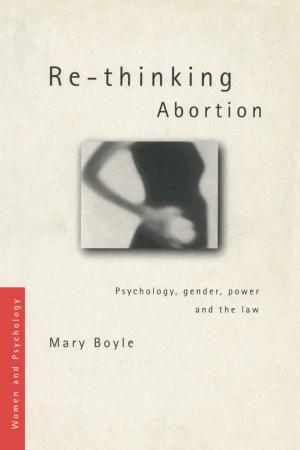Challenging Criminological Theory
The Legacy of Ruth Rosner Kornhauser
Nonfiction, Social & Cultural Studies, Social Science, Crimes & Criminals, Criminology| Author: | Francis T. Cullen | ISBN: | 9781351529594 |
| Publisher: | Taylor and Francis | Publication: | July 12, 2017 |
| Imprint: | Routledge | Language: | English |
| Author: | Francis T. Cullen |
| ISBN: | 9781351529594 |
| Publisher: | Taylor and Francis |
| Publication: | July 12, 2017 |
| Imprint: | Routledge |
| Language: | English |
This volume is divided into five sections that, when taken together, offer an informative account of the impact of Ruth Rosner Kornhauser's Social Sources of Delinquency on the development of American criminological thought. This classic book was her major contribution to the field.
Section I tells the story of Kornhauser's brief but influential academic career. Section II probes deeply into the specific ways in which she challenged criminological theory and the subsequent responses that were forthcoming. Section III then presents commentary on specific lines of inquiry inspired by Kornhauser's book and orientation to criminological theory. Section IV explores recent efforts to move beyond Kornhauser's insights on communities and crime. Section V concludes with three critical essays contending that Social Sources of Delinquency paid insufficient attention to criminal motivation, the role of opportunity in offending, and gangs and girls.
This volume—authored by prominent scholars—shows that Kornhauser's way of thinking about crime continues to be a starting point for much criminological theory today.
This volume is divided into five sections that, when taken together, offer an informative account of the impact of Ruth Rosner Kornhauser's Social Sources of Delinquency on the development of American criminological thought. This classic book was her major contribution to the field.
Section I tells the story of Kornhauser's brief but influential academic career. Section II probes deeply into the specific ways in which she challenged criminological theory and the subsequent responses that were forthcoming. Section III then presents commentary on specific lines of inquiry inspired by Kornhauser's book and orientation to criminological theory. Section IV explores recent efforts to move beyond Kornhauser's insights on communities and crime. Section V concludes with three critical essays contending that Social Sources of Delinquency paid insufficient attention to criminal motivation, the role of opportunity in offending, and gangs and girls.
This volume—authored by prominent scholars—shows that Kornhauser's way of thinking about crime continues to be a starting point for much criminological theory today.















